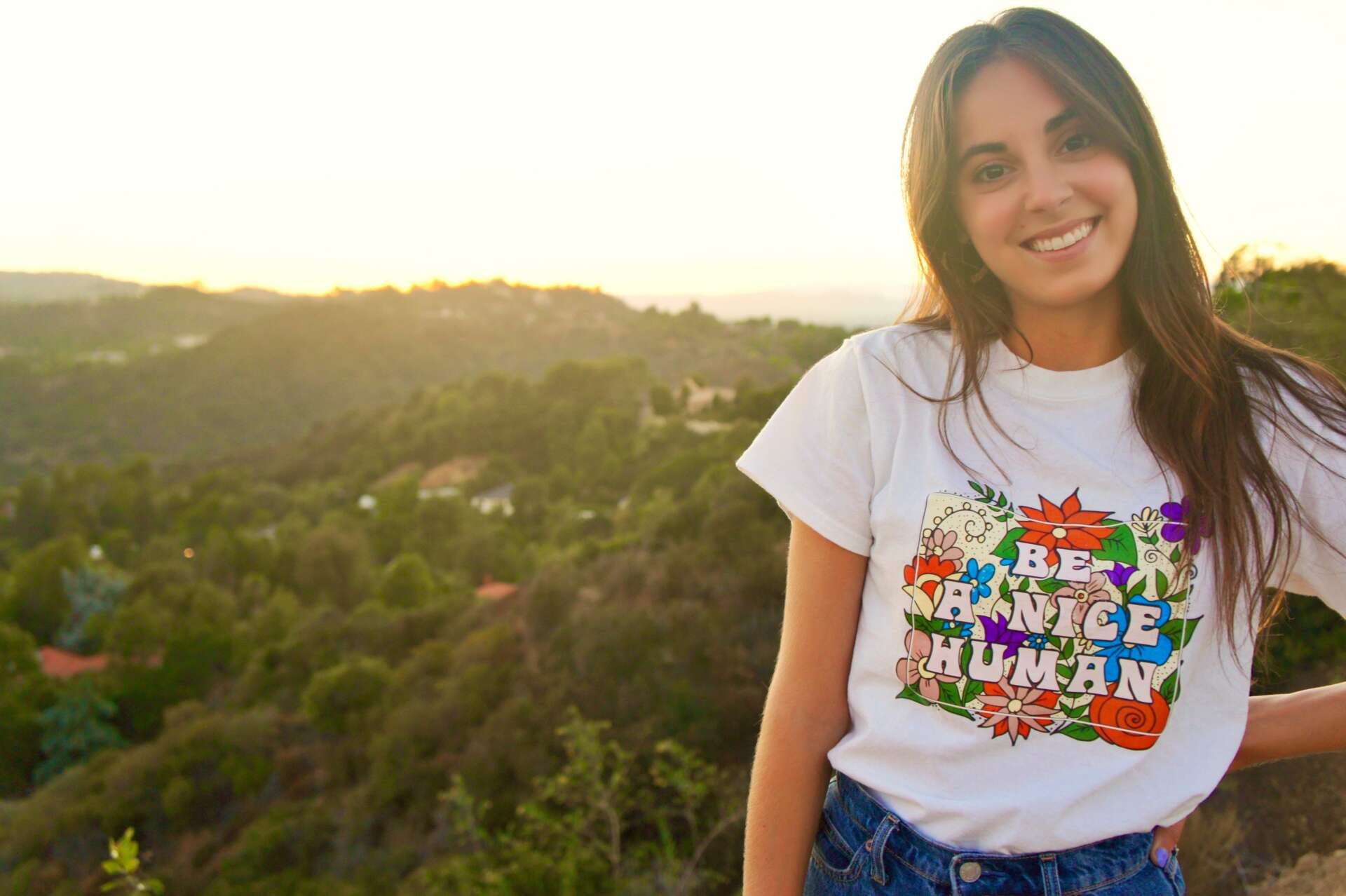We’re excited to introduce you to the always interesting and insightful Kristen Vaganos. We hope you’ll enjoy our conversation with Kristen below.
Kristen, thanks for taking the time to share your stories with us today It’s easy to look at a business or industry as an outsider and assume it’s super profitable – but we’ve seen over and over again in our conversation with folks that most industries have factors that make profitability a challenge. What’s biggest challenge to profitability in your industry?
It’s funny you ask this. I just read an incredible article published in Filmmaker Magazine on the topic of challenges facing the revenue stream in the current film industry. Naomi McDougall Jones and Liz Manashil, two amazing female filmmakers and proponents of independent film, ran a major investigation into the factors prohibiting truly independent film from making money in today’s streamer driven age. They analyzed and compared top-line revenue data, in gross and net terms, from 104 feature films with budgets ranging from $50K to $1.5M, to shed light on the factors working for or against independent film today. I highly recommend this article to anyone contemplating diving into the shaky waters of film production.
The article can be found here: https://filmmakermagazine.com/120384-truth-about-independent-film-revenue/
The reason for Naomi and Liz’s intrigue and research is the same reason I am nervous as a producer in this industry. Today’s film industry no longer seems interested in supporting truly independent films from new filmmakers who are not backed by a major studio or agency.
We all joke that there are no original stories out there anymore and that only Marvel movies seem to make money. It’s not quite this simple but it almost is. The industry is now dominated by the streaming services, SVOD and AVOD platforms, where films are bundled and furthermore, devalued by the unlimited viewing that audiences are allowed “for small monthly fees—fees effectively subsidized by low license fees to creators—that pale in comparison to the true cultural value of all the films in those libraries.” – to quote Naomi and Liz’s article.
The exceptions are the golden films that are set up to succeed from the get-go. Often the big-budget, star-studded films are developed already knowing where they will be distributed. Or those that don’t, go on to premiere at highly-esteemed worldwide festivals like Sundance, Cannes, Telluride, or Tiff and then the Netflixs and the Hulus spend major dollars in a bidding war to acquire said film.
The current market, betting on the 0.01% of talent names that draw international sales and pre-vetted IP, doesn’t leave much room for the indie films which are made on shoe-string budgets that it broke the filmmaker’s back to raise, and that they owe back, who fight for a spot at an esteemed festival only to learn there weren’t really many spots left after inner-circle dealings and that the distributors who are attending the smaller festivals they did get into, may prove to be a scam. And if publicity is just another line item on that tight low budget, there is a lack of marketing dollars available for an independent films to even get onto the radar of the companies that might be able to get them a great MG.
I am just scratching the surface here of the challenges facing independent filmmakers today and also, there are always unicorns who find their audience despite the odds. Which is what keeps us all coming back. We all have a friend who made a gorgeous film and sold it at Tribeca and got their next movie deal from it. But we all have several friends who spent years and funds, favors, and relationships bringing their passion project to life, all to be underwhelmed by the amount of viewers it reached and reception it received.
This is a larger conversation and I, as a producer currently engaging in the indie film system, am still determined to make good work with good people and fight the honest fight toward catching audience eyes who will hopefully, be glad I did. I don’t mean to discourage filmmakers at all, but I do think the industry needs to reckon with where it is placing value and filmmakers need to get creative.

As always, we appreciate you sharing your insights and we’ve got a few more questions for you, but before we get to all of that can you take a minute to introduce yourself and give our readers some of your back background and context?
Ah yes, well I grew up in Philadelphia to a Greek-American family who knew absolutely nothing about the entertainment industry. I got hooked on acting doing plays in school and in my township Then I graduated to local short films and commercials. Then I bet it all and went to New York where I earned my BFA in Drama from NYU Tisch. I graduated a year early to move to LA and pursue acting on a larger scale. I’ve starred in many films, commercials, even some music videos, and I participate in the improv comedy scene as a performer at UCB. During covid, I began producing and now I juggle both hats while also forcing myself to write as often as I can.

Any advice for managing a team?
When producing a film, you are the liason between all departments; the talent and their agents, the camera department, the wardrobe department, the executives and financiers, and on and on. People joke that when you’re producing a film, you’re just going back and forth from department to department telling them why they can’t have more money and there’s a lot of truth to that. But moreso, what it underlines is that it’s very easy for departments to become competitive. The beauty of a film set is that everyone there has one specific expertise and if we all rotated jobs, the film would never come together, but when we each tackle our brilliant skillset, magic happens. And so of course, every person on set think that thier jobs matters the most and that they need the extra resources, extra time, extra money. I want them to think that and advocate for their department’s needs! But of course I can’t fulfill all of them so my job is to keep everyone happy, motivated, collaborative, and feeling respected and appreciated.
On a recent film that I produced, we had to fire our first assistant director after week 1 of a 3 week feature film shoot. For those outside the film industry, the 1st AD is an integral position on a film set because he/she/they is responsible for communicating between departments to keep the set on schedule. This can be a difficult job because you often find yourself telling people that they are out of time while they are trying to perfect their job; the lighting is as good as it’s going to get, the makeup must stop, the actor must get to set, we must start shooting, and now we are out of takes and we must move on. So of course, to execute this job successfully, you must plan ahead. You must constantly check in with each department on an eta, you must make each department feel valued, important, and cared for so that when it comes time that they must listen to you and they must move faster, they feel motivated to do so. This had not been the case on said recent project. We had an AD who seemed to just yell into the abyss that “WE NEED TO MOVE FASTER!” instead of actually checking in with peopel and guaging their needs. So I actually ended up letting go of our first AD and stepping in to complete the job myself. After I took over, I carried these exact principles and was able to do the job successfully. I checked in on people, respected their work ethic, set them up for success with constant ETAs, and I made it so that our crew on this low budget very quick feature film shoot felt motivated and inspired to go that extra mile and perfect that light to make the shot as beautiful as it could be in the time that we had.
As an actor, especially when I’m the lead actor in a film, I operate quite similarly. I have been told numerous times that the lead actor very quickly dictates the tone and energy on set. A diva on the verge of a freakout will put everyone on guard, inject a bit of fear and tension. That’s a stereotype of course but you get the point. I’ve always made specific effort to learn EVERYONE’S names on day one, make genuine eye contact, thank everyone, crack jokes, etc to establish a comfortable, easy, friendly tone on my sets. Now Im not an angel, my sense of humor is to tease but usually people catch on pretty quickly that it’s my love language of sorts to poke fun. But this pointed effort to make everyone comfortable comes back to me. When an intense or emotional scene comes up and I need space or time, I am granted it because people respect my work the way I’ve respected theirs.
A long winded response which really aims to say, make sure your employees, collaborators, or team feel respected, appreciated, valued, seen, heard, and they will put their best work out there. Stay calm in the face of chaos, I know it’s hard, work on having a long fuse, and let it out later!! Over a glass of wine!! Because lord knows we gotta care for ourselves too :)

What’s the most rewarding aspect of being a creative in your experience?
The most rewarding aspect of being an artist to me is without a doubt the conversations and connections that can occur after audience members witness the same piece of art in a room together. I have had some of my deepest, most open, revealing and vulnerable conversations as I’m leaving a movie theatre with a friend I just quietly sobbed next to for 2 hours.
For example, a friend and I recently went to see the Oscar nominated film ‘The Whale’ in theatres and proceeded to have a 45 minute discussion in the parking garage analyzing each heartbreaking moment and layered character choice, those we agreed with, those we didn’t, and those dark uncomfortable moments we understood were necessary but hated having to sit through. (spoiler alert) I remember we talked at length about the cinematic choice to keep the viewer locked in the house, just as the protagonist was, until one shot further than midway through the film in which the camera first captures the exterior of his house. It is revealed that the obese man on the verge of death whom we’ve been watching and empathizing with, lives on the second floor of his building and in that moment, we realize just how stuck he really is. We feel the full weight of the situation we’ve been engrossed in for an hour and a half. I remember feeling the bottom of my stomach drop as I watched that scene, the claustrophobia of the direness caving in on me. It made me yearn for more visits from his family, even the cruel ones, just to give him a sense of the outside community. This film was critically acclaimed, as evidence by Brendan Frasier’s Oscar win for portraying the protagonist, but it was also debated as being indulgent, exploitative, and grotesque. My friend and I loved it. Others hated it. More than anything, it spawned conversations and debate. For the brief moment after witnessing the film together, I felt closer to my friend and to the fictional character than anyone else in the world.
I tell this tangential tale just because it’s a recent memory that stands out in my brain as evidence of the effect art has on us. We all spoke about how grateful we were for film & TV during the pandemic when it was all we had for entertainment and connection (Netflix watch parties, etc) and I hope we keep hold of that feeling of appreciation. Sometimes the Hollywood factor and the money element can get in the way of why we all got into this business. I hope we remember that giddy feeling in our tummys when we greenlight, cast, hire, watch.


Contact Info:
- Website: www.kristenvaganos.com
- Instagram: www.instagram.com/kvaganos
- Linkedin: https://www.linkedin.com/in/kristen-vaganos-581b2bb1/
- Twitter: https://twitter.com/kvaganos
Image Credits
Erica Everett, PhotoshootLA, Zachary Kemper, Emerson Niemchicken


